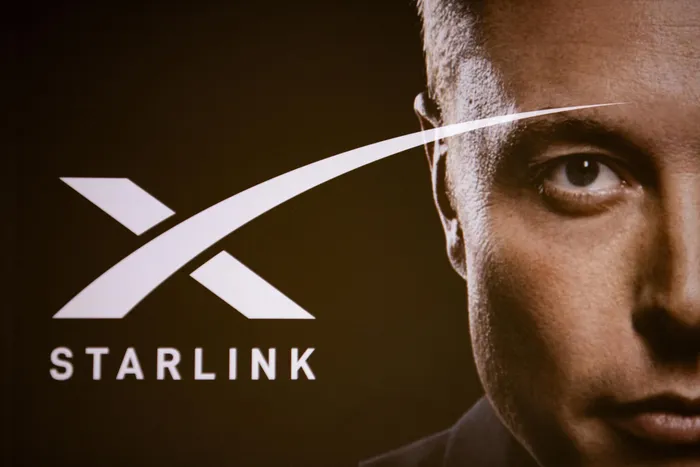Understanding the impact of B-BBEE principles on South Africa's digital landscape and Elon Musk's Starlink

Minister of Communications and Digital Technologies, Solly Malatsi, has proposed a policy to guide ICASA on applying Broad-Based Black Economic Empowerment principles in the ICT sector. This includes setting licensing requirements for satellite service providers like Elon Musk's Starlink.
Image: AFP
Minister of Communications and Digital Technologies, Solly Malatsi, last week proposed a policy direction to guide the Independent Communications Authority of South Africa (ICASA) on the application of Broad-Based Black Economic Empowerment (B-BBEE) principles within the Information and Communications Technology (ICT) sector, including licensing requirements for satellite service companies such as Elon Musk's Starlink.
Issued under the Electronic Communications Act (ECA) of 2005, the policy aims to align existing ICT regulations with national objectives related to broadband rollout and bridging the digital divide.
The key objectives of the policy include:
- Encouraging investment, including strategic infrastructure investment, and innovation in the communications sector
- Promoting competition within the ICT sector
- Promoting, facilitating and harmonising the achievement of the objects of legislation related to the Act.
Why this matters
Broadband access is critical to South Africa’s socio-economic development. Research cited in the policy notes that a 10% increase in broadband penetration typically yields a 1.21% GDP growth in middle-income countries like South Africa. Ensuring fair and broad access supports entrepreneurship, employment, and business growth, especially in underserved communities.
The policy specifically addresses the recognition of equity equivalent investment programmes, alternative mechanisms multinational ICT companies can use to contribute to South Africa’s empowerment goals when direct equity ownership by historically disadvantaged groups is challenging due to global operational constraints.
Legal Framework and Conflict
The policy clarifies that the current ICASA regulations on equity ownership and control by historically disadvantaged groups do not fully align with the Amended B-BBEE ICT Sector Code, which measures broad-based empowerment more broadly than just ownership percentages.
Section 9(2)(b) of the ECA requires a minimum of 30% equity ownership by historically disadvantaged groups but allows for alternative conditions via regulations under the ICASA Act.
The ICT Sector Code, governed by the B-BBEE Act and administered by the Department of Trade and Industry (DTI), is the authoritative code for B-BBEE compliance in the ICT sector.
The policy directs ICASA to align its regulations with the ICT Sector Code, recognising broader empowerment compliance beyond simple ownership.
Phumzile van Damme, former Member of Parliament expressed concern about Malatsi's proposed policy directive.
In a detailed thread on X, she argued that “most think the policy directive alone will exempt Starlink. No. Not by a stretch. The process currently unfolding is procedurally flawed & unconstitutional.”
She explained that “exempting Starlink from the B-BBEE ICT Sector Code’s obligations through a Comms Dept ministerial policy directive is incorrect procedurally & constitutionally.”
Van Damme warned that “once published, 99.9% chance it is taken on judicial review and struck down. It is already dead on arrival.”
Van Damme highlighted that the Minister’s attempt to issue a directive falls outside the proper legal framework, as “the enabling legislation for the directive is the BBBEE Act, not the ECA or ICASA Acts. Only the DTI Minister can amend or repeal a sector Code.”
Van Damme described the Malatsi's action as “ultra vires-beyond the scope of their legal authority.”
Furthermore, she stressed that “amending a BBBEE Sector Code is serious business,” requiring “imitation by the relevant body, impact assessments, compliance with the enabling act, public comment on the draft code (60 days required), then gazette and finalisation.” She noted that “a simple ministerial directive cannot shortcut this legally mandated process.”
Even if the directive were correctly issued by the appropriate ministry, van Damme pointed out that “that directive alone changes nothing until the ICT Sector Code itself is amended.”
She cautioned that ignoring these steps risks the directive being declared invalid, saying the process “will face opposition from stakeholders, legal resistance from political parties, and inherent procedural delays.”
Van Damme emphasised that “the laws of South Africa are made by its people, not billionaires. The people are represented in Parliament by their elected representatives. Our Constitution requires adherence to this principle. The people, not billionaires, govern. The public decides.”
“Yes, the medicine is harsh, but the patient requires it in order to live. Should we withhold the medicine? No.”
hope.ntanzi@iol.co.za
Get your news on the go, click here to join the IOL News WhatsApp channel.
IOL Politics
Related Topics: